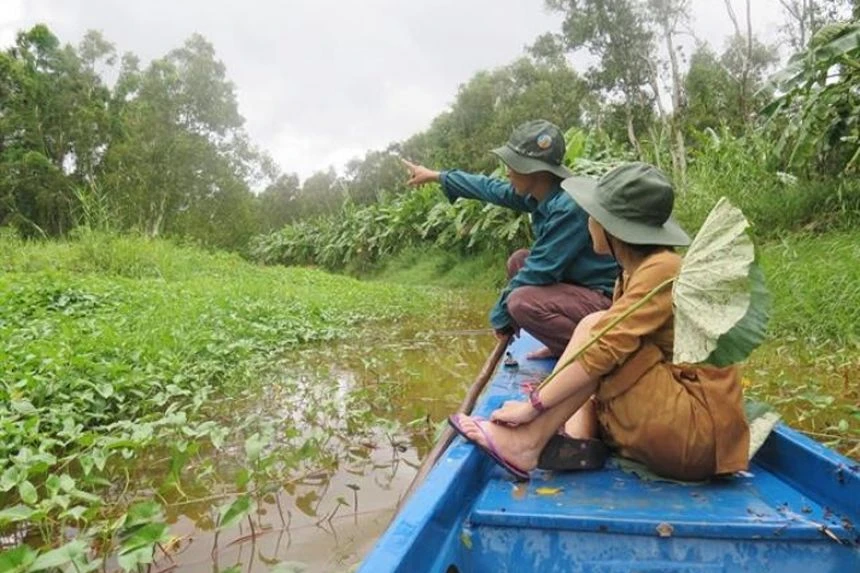
Located in southern Vietnam, the Mekong Delta has a diverse and unique ecosystem that includes marine life, islands, estuaries, wetlands, mangroves and delta islands, along with biosphere reserves, national parks and nature reserves.
For local economies, these ecosystems provide rich fishing opportunities, fruits, alluvium for agriculture and space for tourism.
The Mekong Delta region accounts for 12 per cent of the country's area and nearly 20 per cent of its population.
But rapid, unplanned economic development, unchecked population growth and climate change continually put pressure on these ecosystems, which have been reduced in size and degraded.
Now, multiple efforts are under way to preserve the ecosystems.
The province has ramped up the planting of coastal protection forests, planted trees to control salinity and ensured sea dyke protection on a total area of 85ha, Viet Nam News reported.
Since the end of 2017, more than 540ha of mangrove forests have been grown in the province.
On the island city of Phu Quoc, the first Saturday of each month has been observed as a day for the environment when all people and organisations are called on to act for a greener, cleaner, and safer "Pearl Island".
Together with Patong in Thailand and Donsol in the Philippines, Phu Quoc has made a commitment to eliminate plastic pollution in the area.
Along with this, many endangered and native animals, such as Burmese pythons and pangolins, have been released into Ca Mau's U Minh Ha National Park by the Vietnamese authorities to protect its biodiversity.
By conserving biodiversity, the local authorities hope they will be able to revive tourism as well.
The tourism industry in the Mekong Delta region has taken a knock during the pandemic as the number of visitors decreased rapidly.




















